Photographs: Ahmed Jadallah/Reuters
Find out just what effects consumption of tobacco has on your body.
Once you start, it's hard to stop smoking. Even kids today know that smoking causes cancer, emphysema, and heart disease; that it can shorten your life by 10 years or more; and that the habit may cost a smoker thousands a year. So how come people are still lighting up? One word answers it well -- addiction and it is hard habit to break as the body and mind quickly become so used to the nicotine in cigarettes that a person needs to smoke to just feel normal.
Nicotine is an addictive drug just like heroin and cocaine and when creates pleasant feelings that make the smoker want to smoke more. Nicotine affects the chemistry of the brain and central nervous system, affecting the smoker's mood.
Nicotine reaches the brain within seconds after taking a puff, and its effects start to wear off within a few minutes. The typical smoker takes about 10 puffs from each cigarette. A person smoking a pack per day gets about 200 hits of nicotine each day.
Nicotine like other addictive drugs floods the brain's reward circuits with dopamine (a chemical messenger). Nicotine also gives you small adrenaline rush that is enough to speed up your heart and raise your blood pressure.
Statistics show that about 9 out of 10 tobacco users start before they're 18 years old and that's why it is wise to not start smoking at all.

Simplifying healing and protective food secrets.
SMOKING: Are bidis safer than cigarettes?
Photographs: Vivek Prakash/Reuters
What's second-hand smoke?
Second-hand smoke is the combination of smoke from the burning end of a cigarette and the smoke exhaled by the smoker. When you stand near a smoker or go to a restaurant or home where smoking is allowed‚ you breathe second-hand smoke.
How risky is second-hand smoke?
The dangerous particles in second-hand smoke can linger in the air for hours and include carbon monoxide (also found in car exhaust), ammonia, butane, chromium, cyanide (also used in chemical weapons), lead (toxic metal), polonium (radioactive substance) etc.
Second-hand smoke causes cancer, heart disease and breathing problems; second-hand smoke damages blood vessels thus hindering circulation, which increases the risk of heart disease and heart attack. Second-hand smoke is a known risk factor for lung cancer plus may increase the risk of leukemia. Second-hand smoke also causes chronic coughing, phlegm and wheezing, as well as eye and nose irritation.
You can reduce or eliminate exposure to second-hand smoke by not allowing people to smoke at home or in your vehicle or when eating out opt for smoke free zones or when travelling request non-smoking hotel rooms.
Second-hand smoke is dangerous and there is no safe amount of second-hand smoke.
SMOKING: Are bidis safer than cigarettes?
Photographs: Goran Tomasevic/Reuters
Is hookah smoking safer than smoking cigarettes?
Hookah smoking has become popular among young people and is usually a social event in which smokers talk as they pass the pipe around.
Hookah smoking is not safer than cigarette smoking as tobacco is no less toxic in a hookah pipe, and the water in the hookah does not filter out the toxic ingredients in the tobacco smoke.
Hookah smokers tend to inhale more tobacco smoke than cigarette smokers do because of the large volume of smoke they inhale in one smoking session, which may last as long as 60 minutes.
While more research about hookah smoking is required the current evidence states that hookah smoking is dangerous as it contains high levels of toxic compounds, including tar, carbon monoxide, heavy metals and cancer-causing chemicals (carcinogens).
Hookah smoking delivers about the same amount of nicotine as cigarette smoking and so may get addictive, possibly leading to tobacco dependence. Hookah smoking is addictive and may lead to lung, mouth, and bladder cancer and heart disease, and other serious illnesses.
SMOKING: Are bidis safer than cigarettes?
Photographs: Rupak De Chowdhuri/Reuters
Is chewing tobacco safer than smoking?
Chewing tobacco is in fact more harmful and addictive and can cause serious health problems. Whether it is smokeless tobacco, spit tobacco, chew, snuff, pinch or dip.
Chewing tobacco is a common type of smokeless tobacco that consists of either tobacco or a tobacco blend that's chewed, sucked on or sniffed, rather than smoked.
Snuff is made up of shredded tobacco leaves and is available in dry or moist forms.
Chewing tobacco is made up of loose tobacco leaves that are sweetened and packaged in pouches. Dissolvable tobacco is made up of compressed powdered tobacco, similar to small hard candies and is also called tobacco lozenges.
Smokeless tobacco products are associated with increased risks of cancer of the mouth, esophagus and pancreas plus increases risks of heart disease.
SMOKING: Are bidis safer than cigarettes?
Photographs: Christian Hartmann/Reuters
What are electronic cigarettes and are they safer than regular cigarettes?
Electronic cigarettes are designed to look like cigarettes, right down to the glowing tip and may only sound healthier as they deliver a vapour of nicotine to satisfy your craving, without the nasty side effects.
Electronic cigarettes contain nicotine and have an atomizer that heats liquid containing nicotine, turning it into a vapour that can be inhaled and creating a vapour cloud that resembles cigarette smoke.
The Food and Drug Administration of United States has questioned the safety of these products as when analysed they found variable amounts of nicotine and traces of toxic chemicals known as cancer-causing substances or carcinogens.
Electronic cigarettes are relatively new, so there are no long-term studies on the effects of using them regularly.
SMOKING: Are bidis safer than cigarettes?
Photographs: Toussaint Kluiters/Reuters
Are bidi's safer than smoking cigarettes?
Bidis have become popular as they give a quick buzz, are unfiltered, hand rolled containing unprocessed tobacco leaf and tied with colourful strings on the ends and come in many candy-like flavours (strawberry, vanilla, licorice, and grape), and because they are much cheaper than regular cigarettes.
Even though bidis contain less tobacco than regular cigarettes, they deliver higher levels of nicotine and other harmful substances, such as tar, ammonia, and carbon monoxide. Because they are thinner than regular cigarettes, they require about 3 times as many puffs per cigarette.
Bidis smokers have much higher risks of heart attacks, chronic bronchitis, and some cancers than non-smokers.
SMOKING: Are bidis safer than cigarettes?
Photographs: Toussaint Kluiters/Reuters
How powerful is nicotine addiction?
About 70 per cent of smokers say they want to quit and about half try to quit each year, but only 4 per cent to 7 per cent succeed without help.
This is because smokers not only become physically dependent on nicotine but there is also a strong emotional (psychological) dependence and this is what leads to relapse after quitting as the smoker links smoking with social activities.
Smokers may also use tobacco to help manage unpleasant feelings and emotions, which makes it tougher to quit.
SMOKING: Are bidis safer than cigarettes?
Photographs: Danish Siddiqui/Reuters
Am I at risk for cancer from being in a room that smells of tobacco smoke?
Research does show that second-hand smoke can seep into hair, clothing, dust, and other surfaces and this is termed as third hand smoke.
It or third hand smoke refers to particles that are left on surfaces after you can no longer see the smoke that can be picked up by people worse if picked up by babies and small children.
Polycyclic aromatic hydrocarbons (PAHs) are known carcinogens that have been found in settled house dust in the homes of smokers.
Though the cancer-causing effects of third-hand smoke is not known, this is an active area of tobacco research.
SMOKING: Are bidis safer than cigarettes?
Photographs: Finbarr O'Reilly/Reuters
Is weight gain inevitable after you quit smoking? What causes it?
Many people gain weight after they stop smoking, especially in the first few months. Smoking acts as an appetite suppressant and may increase your metabolism slightly so when you quit smoking, your appetite and metabolism return to normal that may lead you to eat more and burn fewer calories.
When you quit smoking your ability to smell and taste food improves making food more appealing, which may lead you to eat more.
Many substitute snacking for smoking so the calories may quickly add up.
To avoid weight gain when you quit smoking, opt for a healthy diet with many frequent meals and add exercise as a part of your stop-smoking plan as regular exercise helps burns calories plus relieves withdrawal symptoms and cravings.
SMOKING: Are bidis safer than cigarettes?
Photographs: Parivartan Sharma/Reuters
Is it true that smoking causes wrinkles?
Yes smoking does add premature wrinkles as it can speed up the normal ageing process of your skin, contributing to wrinkles.
Early skin damage from smoking may be hard for you to see but the more cigarettes you smoke and the longer you smoke, the more skin wrinkling you're likely to have.
How does smoking lead to wrinkles?
The nicotine in cigarettes or cigars causes narrowing of the blood vessels in the outermost layers of your skin reducing the blood flow to your skin. With less blood flow, the skin cells don't get as much oxygen as they need and important nutrients, such as vitamin A.
Chemicals in tobacco smoke also damage collagen and elastin, which are fibers that give your skin its strength and elasticity. Thus your skin begins to sag and wrinkle prematurely because of smoking.
SMOKING: Are bidis safer than cigarettes?
Photographs: Yannis Behrakis/Reuters
What are your 'triggers' that push you towards smoking?
Certain mood, feelings, places, or things turn on, your need for a cigarette.
Common triggers include feeling stressed, feeling low, driving, after a meal, taking a work break, drinking coffee, drinking liquor, feeling lonely, or after having sex. Many have an urge to smoke when with other smokers or just seeing a stranger smoke.
Knowing your triggers helps you stay in control and put a check on tempt to smoke.
SMOKING: Are bidis safer than cigarettes?
Photographs: Paul McErlane/Reuters
What are the immediate benefits when you quitting smoking?
Kicking the tobacco habit offers many benefits immediately like your food will taste better, your sense of smell returns to normal, your breath, hair, and clothes smell better, your teeth and fingernails stop yellowing and ordinary activities leave you less out of breath.
Quitting also helps stop the damaging effects of tobacco on how you look, including premature wrinkling of your skin and gum disease.
Source: http://www.cancer.org
SMOKING: Are bidis safer than cigarettes?
Photographs: Lisi Niesner/Reuters
Can quitting really help a life-long smoker?
It's never too late to quit using tobacco the sooner you quit, the more you can reduce your chances of getting cancer and other diseases.
Within minutes of smoking the last cigarette, the body begins to restore itself.
20 minutes after quitting your heart rate and blood pressure drops.
12 hours after quitting the carbon monoxide level in your blood drops to normal.
2 weeks to 3 months after quitting your circulation improves and your lung function increases.
1 to 9 months after quitting cilia (tiny hair-like structures that move mucus out of the lungs) start to regain normal function in the lungs, increasing the ability to handle mucus, clean the lungs, and reduce the risk of infection.
1 year after quitting you have reduced the risk of coronary heart disease to half that of a continuing smoker's.
5 years after quitting your risk of cancer of the mouth, throat, esophagus, and bladder are cut in half. Cervical cancer risk falls to that of a non-smoker. Stroke risk can fall to that of a non-smoker after 2-5 years.
10 years after quitting your risk of dying from lung cancer is about half that of a person who is still smoking. The risk of cancer of the larynx (voice box) and pancreas decreases.
15 years after quitting the risk of coronary heart disease is that of a non-smoker's.
Source: http://www.cancer.org

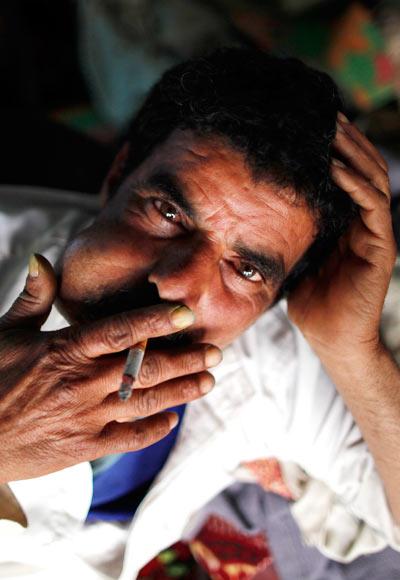

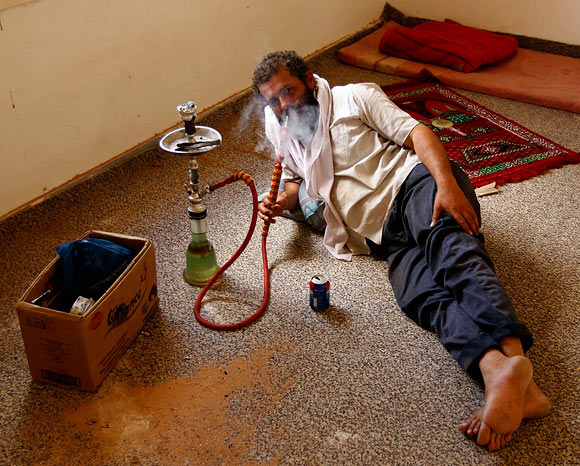
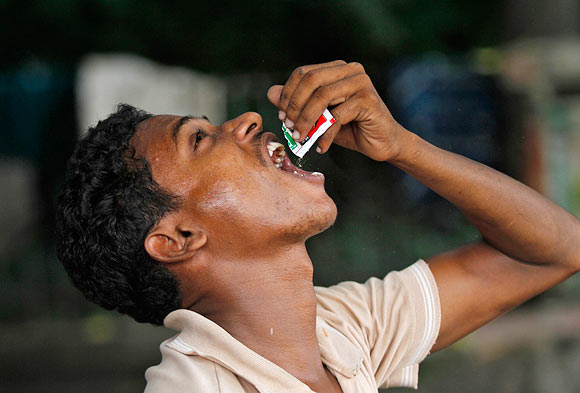
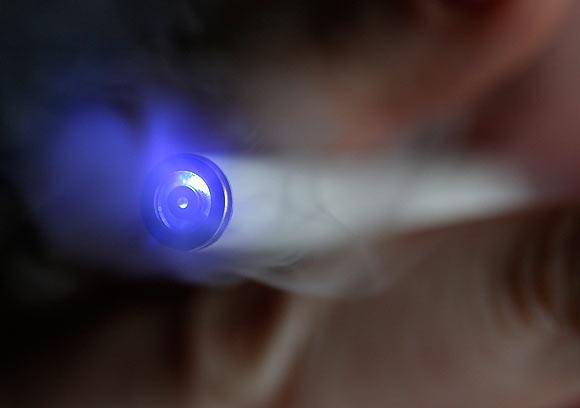
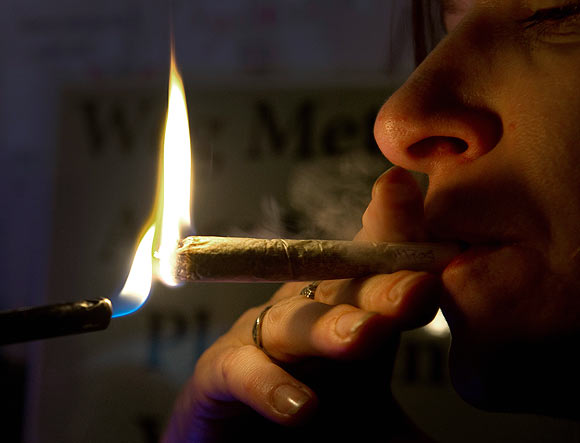
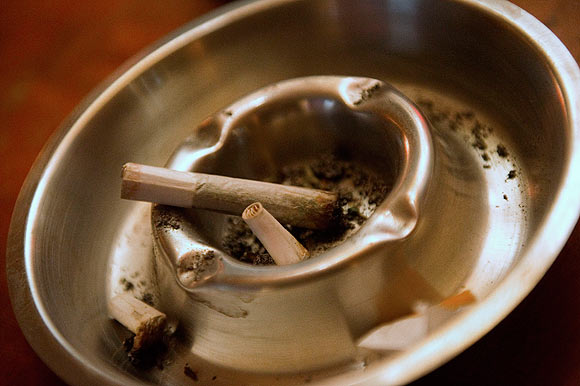
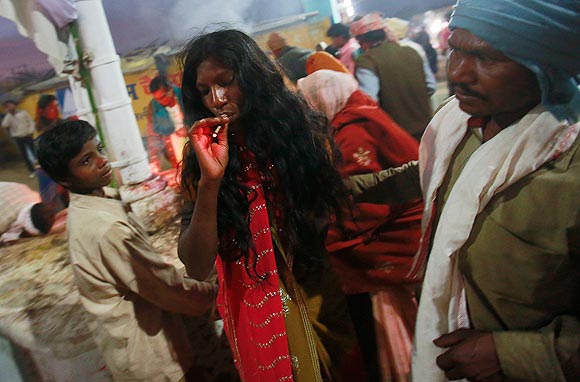
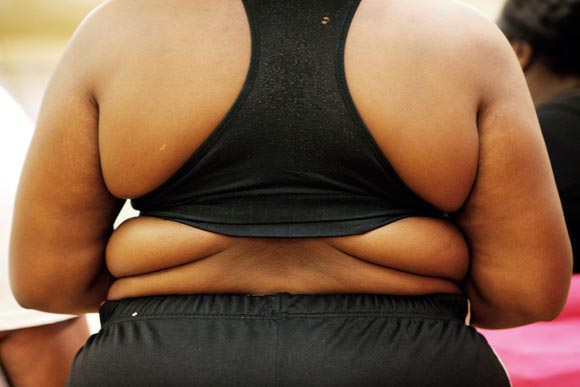
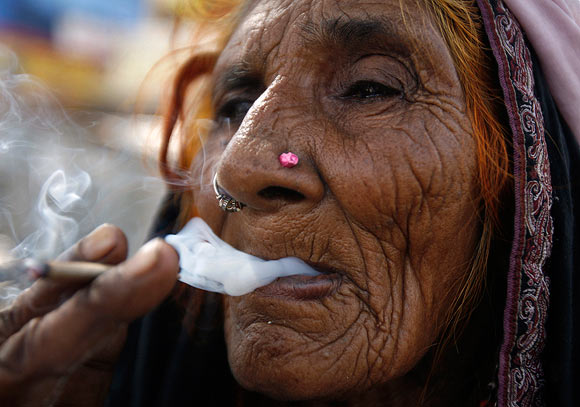
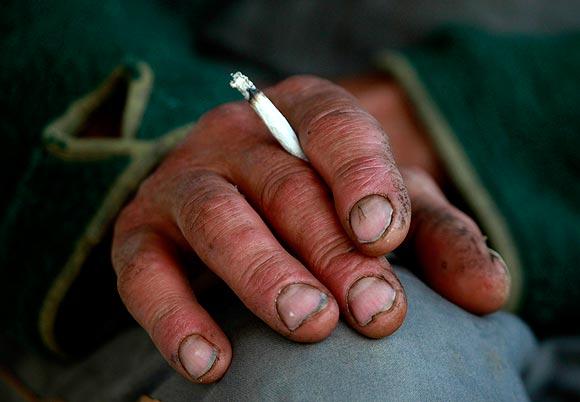
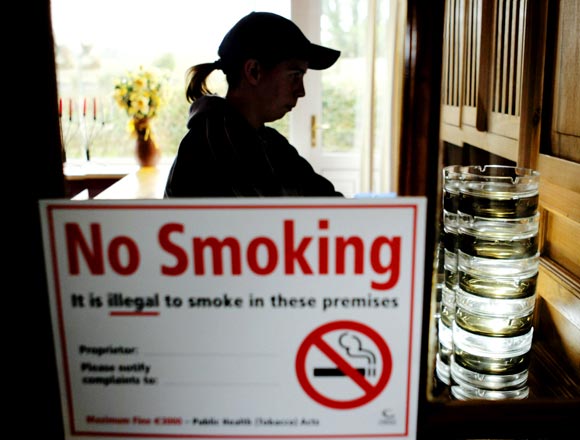
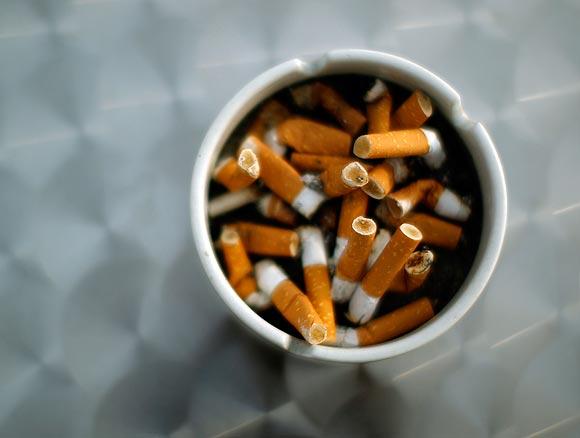
Comment
article